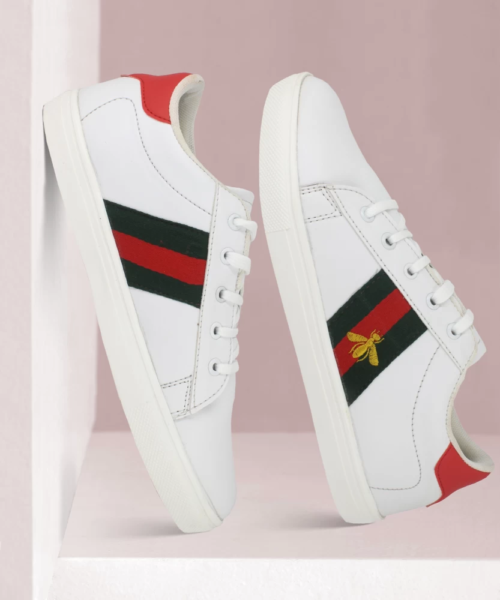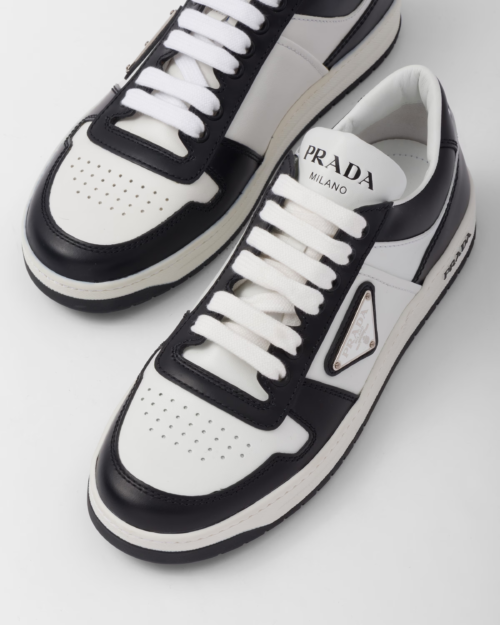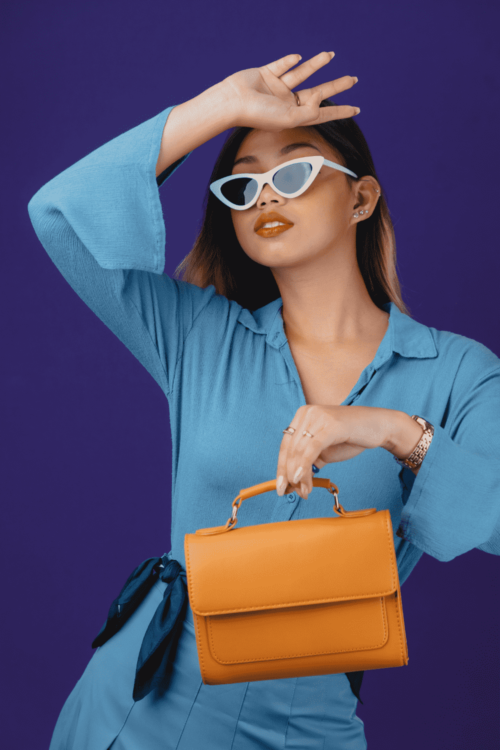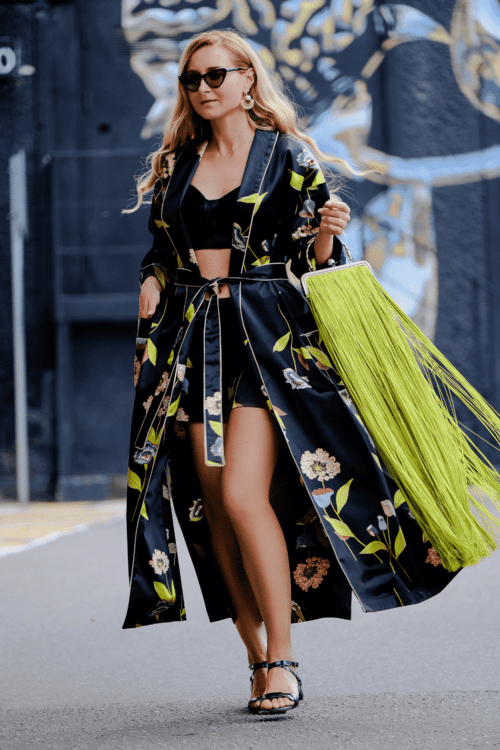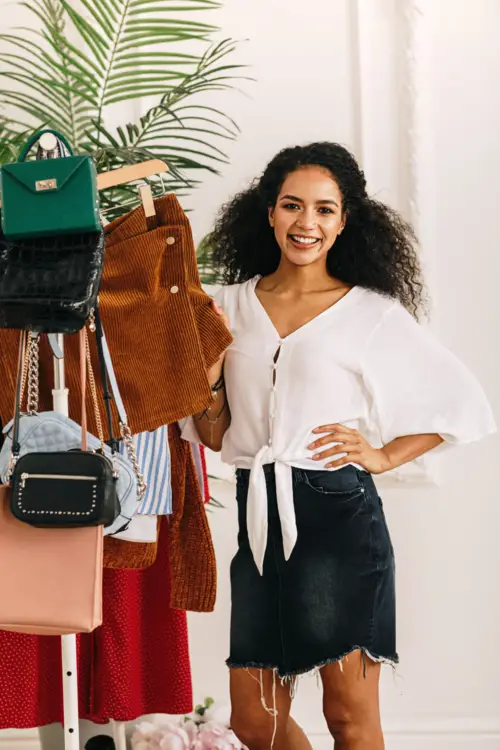
When it comes to celebrating love, African wedding attire stands out for its mesmerizing beauty and deep cultural significance. Have you ever wondered what makes these traditional outfits so unique? From the vibrant colors to the intricate designs, every piece tells a story of its own.
Whether you’re planning a wedding or just fascinated by cultural fashion, you’ll find that African wedding attire is a feast for the eyes and the soul. In this guide, you’ll discover the patterns, styles, and cultural meaning behind some of the most stunning garments from various African regions. Get ready to be inspired by the elegance and diversity of African wedding fashion!
The Significance of African Wedding Attire
When you think of African wedding attire, it’s hard not to be amazed by the richness of its history and the message each piece carries. Every element is carefully crafted to not only display beauty but also to tell a deeper story. This goes far beyond just a fashion choice—it’s about embracing and celebrating the essence of African culture. Let’s break down the significance into two important aspects: cultural heritage and symbolism.
Cultural Heritage
African wedding attire is a palpable link to the cultural heritage of different African communities. Imagine the traditional robes of the Yorubas in Nigeria or the intricate beadwork of the Zulus in South Africa. These are not just clothes; they are an expression of lineage, tradition, and ancestral pride.
- Connection to Ancestors: Each piece of clothing can be thought of as a bridge connecting individuals to their ancestors. For instance, certain patterns and fabric choices are often inspired by what their forebears wore, making it a way to honor and remember them.
- Workmanship and Craftsmanship: You might notice that African wedding attire involves highly skilled craftsmanship. Whether it’s the weaving of Kente cloth in Ghana or the embroidery in North Africa, these lovingly made pieces are repositories of cultural tales passed down through generations.
- Community Identity: Wearing traditional attire at a wedding becomes a statement of identity. It’s the epitome of showing where you come from and the values upheld by your community. It’s almost like wearing your family’s heritage on your sleeve—literally.
Symbolism and Meaning
The brilliance of African wedding attire isn’t confined to colors and shapes—each element in these garments is laden with meaning. From colors to patterns, every detail counts.
The Symbolism of Colors:
- Red: Often signifies bravery, sacrifice, or love.
- Gold: Represents wealth, royalty, and spirituality.
- Blue: Is a symbol of peace, harmony, and love.
The Meaning of Patterns:
- Geometric Patterns: You might see complex, repetitive geometric patterns on many African attires. These often symbolize unity and harmony, encapsulating the idea that pieces, no matter how small, come together to form a whole.
- Traditional Symbols: Icons and symbols native to a particular community can carry spiritual meanings or historical stories. For example, Adinkra symbols in Ghana each have unique meanings, such as wisdom, strength, or unity.
These elements combined make African wedding attire much more than just garments. They are intricate tapestries of symbolism and heritage.
As you admire or even choose African wedding attire, remember that you’re not just looking at clothes. You’re looking at an outfit that’s deeply imbued with ancient meanings and contemporary relevance. And that’s what makes these outfits truly magnificent and deeply moving.

Popular African Wedding Attire Styles
When you think of African wedding attire, you imagine a vivid tapestry stitched with deep history and dazzling colors. Across the vast continent, each region boasts its unique traditional attire that reflects its distinct cultures and traditions. Here, you will uncover some of the popular African wedding attire styles, each a feast for the eyes and a testament to rich cultural legacies.
1. Kente Cloth
- Description: Kente cloth, originating from Ghana, is a handwoven fabric traditionally made of silk and cotton. It is known for its vibrant, multicolored patterns and geometric designs, each with symbolic meanings. Historically, Kente was worn by royalty and is now a symbol of pride and cultural heritage.
- Ideas: Brides can opt for an elegant Kente gown, which may include a fitted bodice and a flowing skirt. The groom can complement this with a tailored Kente suit or an agbada, a wide-sleeved robe, in matching colors. Accessories such as gold jewelry, beaded necklaces, and head wraps (known as duku) can enhance the traditional look.
2. Ankara Fabric
- Description: Ankara, also known as African wax prints, is a cotton fabric featuring batik-inspired patterns. The designs are often bold and colorful, making Ankara a popular choice for both casual and formal attire. Ankara fabric is versatile and can be used to create a wide range of clothing styles.
- Ideas: Bridesmaids can wear coordinated Ankara dresses in styles ranging from mermaid gowns to A-line dresses. Groomsmen can incorporate Ankara fabric into their outfits through blazers, waistcoats, or bow ties. For a cohesive look, consider Ankara pocket squares and ties for the male bridal party.
3. Aso Oke
- Description: Aso Oke is a traditional Yoruba fabric made from hand-woven threads, often in rich colors like red, blue, and gold. The fabric is thick and textured, providing a luxurious feel. Aso Oke is typically reserved for special occasions such as weddings and is often adorned with embroidery or sequins.
- Ideas: Brides can choose an Aso Oke ensemble, which includes an iro (wrap skirt), buba (blouse), and gele (head tie). The groom can wear an agbada or buba made from matching Aso Oke fabric. Couples can also include fila (traditional caps) and ipele (sashes) to complete their look.
4. Dashiki
- Description: Dashikis are loose-fitting shirts or dresses with intricate embroidery around the neckline, sleeves, and hem. Originally from West Africa, dashikis are now popular across the continent and the diaspora. They come in various lengths and styles, suitable for both men and women.
- Ideas: Couples can opt for matching dashiki outfits, with brides wearing a dashiki dress that may be floor-length or knee-length. Grooms can pair a dashiki shirt with trousers, accessorizing with traditional hats and beads. Dashikis can be made from various fabrics, including cotton and silk, allowing for customization.
5. Zulu Traditional Attire
- Description: Zulu attire often includes vibrant beads, animal skins, and distinctive headgear. Traditional Zulu clothing is rich in color and texture, reflecting the cultural heritage of the Zulu people of South Africa. Beaded accessories play a significant role, symbolizing various aspects of life and status.
- Ideas: Brides can wear traditional Zulu beaded skirts and tops, adorned with intricate beadwork and cowrie shells. Grooms can don animal skin garments, such as leopard skins, and beaded accessories, including arm bands and necklaces. The attire can be complemented with isicholo (traditional hats) for women and ibheshu (loincloths) for men.

6. Ndebele Attire
- Description: Ndebele attire features bright colors and geometric patterns, often used in beaded jewelry and blankets. The Ndebele people of South Africa are known for their distinctive beadwork and mural painting, which are reflected in their traditional clothing.
- Ideas: Brides can wear beaded Ndebele necklaces, headpieces, and aprons decorated with colorful patterns. Grooms can incorporate Ndebele designs into their suits or wear traditional wraps. Beaded leg and arm ornaments can add an authentic touch to the wedding ensemble.
7. Shweshwe Fabric
- Description: Shweshwe is a printed cotton fabric widely used in South African traditional clothing. It is characterized by its intricate, small-scale geometric patterns and indigo dye. Shweshwe is often used to create dresses, skirts, and head wraps.
- Ideas: Brides can have their wedding dress made from Shweshwe fabric, featuring a blend of traditional and modern styles. Grooms can wear Shweshwe waistcoats, ties, or even full suits. Bridesmaids and groomsmen can also incorporate Shweshwe elements into their attire for a coordinated look.
8. Edo Bridal Attire
- Description: Edo brides from Nigeria wear elaborate outfits adorned with coral beads, velvet, and richly embellished fabrics. The attire is vibrant and regal, reflecting the opulence of the Edo culture. Coral beads are significant, symbolizing purity and royalty.
- Ideas: Brides can wear a velvet wrapper and blouse, adorned with layers of coral bead necklaces, earrings, and a crown-like headpiece. The groom can wear a traditional agbada or a George wrapper with a matching coral bead necklace and cap. The couple’s attire can be further embellished with gold embroidery and sequins.
9. Maasai Traditional Attire
- Description: Maasai attire includes shukas (colorful wraps), intricate beadwork, and traditional jewelry. The Maasai people of Kenya and Tanzania are known for their distinctive dress, which features bright red and blue colors symbolizing bravery and strength.
- Ideas: Brides can wear Maasai shukas wrapped elegantly around the body, paired with beaded jewelry such as necklaces, earrings, and bracelets. Grooms can wear traditional Maasai warrior outfits, including shukas, beaded belts, and spears. The attire can be complemented with leather sandals and headpieces.
10. Igbo Traditional Attire
- Description: Igbo wedding attire often includes George wrapper, lace blouses, and coral beads. The Igbo people of Nigeria are known for their rich cultural heritage and colorful traditional attire, which is worn during special occasions such as weddings.
- Ideas: Brides can wear a lace blouse paired with a George wrapper, accessorized with coral beads, anklets, and head ties (ichafu). Grooms can wear a traditional isiagu shirt, which features lion head patterns, along with a wrapper and cap (okpu). The couple’s attire can be adorned with gold or silver embroidery.
11. Moroccan Caftan
- Description: The Moroccan caftan is a long, flowing robe with wide sleeves, often made from luxurious fabrics such as silk, satin, or velvet. Caftans are richly decorated with embroidery, sequins, and beads, reflecting the opulent Moroccan culture. The caftan is a staple in Moroccan weddings, symbolizing elegance and tradition.
- Ideas: Brides can wear a beautifully embroidered caftan in colors like white, gold, or jewel tones, complemented with a matching belt (mdamma) and headpiece. The groom can wear a traditional Moroccan djellaba or a tailored suit that matches the bride’s attire. The couple can further accessorize with intricate jewelry and ornate slippers (babouches).

Tips for Styling African Wedding Attire:
- Accessorize: Use traditional jewelry, headpieces, and footwear to complete the look. Incorporate elements like beads, cowrie shells, and gold for added authenticity.
- Blend Modern and Traditional: Combine traditional fabrics and designs with modern cuts and styles for a unique and personalized look.
- Cultural Significance: Ensure the attire respects and reflects the cultural heritage and traditions of the specific African community. Research the meanings behind patterns and colors to honor the culture properly.
- Personal Touch: Customize your outfits with personal touches, such as initials, symbolic patterns, or family crests, to make them even more special and meaningful.
These ideas celebrate the diversity and beauty of African wedding traditions, ensuring that the special day is both memorable and culturally significant.
Choosing the Perfect African Wedding Attire
Selecting the right African wedding attire is more than just picking out an outfit; it’s about finding something that resonates with your heritage, personal style, and comfort. Your wedding day is a monumental occasion, and the attire you choose should make you feel both regal and comfortable. Let’s dive into the aspects you need to consider to make the best choice for your special day.
Understanding Cultural Significance
African wedding attire isn’t just beautiful fabrics and stunning designs; it carries a deep cultural significance. Each piece of clothing can reflect the traditions, values, and stories of your community. Before choosing your wedding attire, take the time to understand the following:
- Cultural Identity: Learn about the traditional attires specific to your heritage. For example, if you’re of Yoruba ancestry, you may want to wear Aso Oke, a fabric dyed and woven in patterns that reflect Yoruba tradition. In contrast, a bride from the Ewe tribe might consider Kente cloth, renowned for its colorful, geometrical patterns.
- Generational Values: Many African communities have attire that signifies familial respect and continuity. Wearing something your grandparents might have worn contributes to a rich tapestry of cultural continuity.
- Cultural Symbols: Look for symbols and motifs that carry specific meanings. Adinkra motifs in Ghanaian textiles, for instance, each have unique meanings ranging from courage to wisdom.
Understanding these elements can make your attire choice not only ideal for you but a tribute to your ancestry.
Personal Style and Preferences
Just because you’re opting for traditional African attire doesn’t mean you should abandon your personal style. It’s entirely possible to fuse tradition with your unique flair, creating an ensemble that’s truly you. Here’s how to do that:
- Combine Modern and Traditional: You might love the structure of a modern wedding gown but adore the patterns of traditional African fabrics. Consider having a dress custom-made that incorporates both elements. Imagine a fitted mermaid gown constructed from Kente cloth—it’s a blend of the best of both worlds.
- Accessories and Embellishments: Adding personal touches like jewelry or even footwear can make a significant difference. Think about wearing a Western-style veil with an intricately beaded Zulu dress or pairing traditional attire with modern accessories.
- Color Palette: Traditional African wedding attire comes in a wide range of colors, each with its own symbolism. Choose a palette that aligns with your preferred aesthetic. Love daring hues? Opt for vibrant reds and golds. Prefer something subdued? Earthy tones can look equally stunning.
Incorporating your style can make you feel more yourself, while still honoring your heritage.
Comfort and Practicality
While the outfits are designed to look incredible, you’ll also need to think about practicality and comfort. Your wedding day will likely be a long affair filled with ceremonies, dancing, and celebrations, so what you wear should be comfortable enough to see you through without issue.
- Material Choice: Traditional African fabrics are often made of heavier materials like cotton or woven cloth. These can be incredibly comfortable but also quite warm. Make sure to consider the season and venue of your wedding. Choose fabrics that breathe well for summer weddings or warmer options for winter ceremonies.
- Fit and Flexibility: Ensure your attire fits properly and allows for comfortable movement. Remember, you’re not just going to be standing—they’ll be dancing, sitting, and possibly even participating in rituals that require some degree of flexibility.
- Footwear: Don’t underestimate the importance of comfortable footwear. If your outfit is long and covers your feet, consider wearing shoes that provide support but won’t be visible. If part of your legs and feet will be on display, you might want to opt for stylish yet comfortable sandals.
A practical, comfortable choice means you’ll spend less time adjusting your attire and more time enjoying your special day.
As you embark on your journey to find the perfect African wedding attire, keep these factors in mind. Each element plays a vital role in making your day as memorable and as special as it deserves to be.
Conclusion
African wedding attire enchants with its sheer beauty and profound cultural resonance. Each garment is a masterpiece, weaving together the rich heritage and meaningful symbols of various African communities. As you embrace these exquisite outfits, you celebrate not only love but also a vibrant cultural legacy that deserves admiration and respect.
Whether you’re exploring Yoruba Aso Oke, Ghanaian Kente cloth, or an elegant Habesha Kemis, African wedding attire offers endless inspiration. Infuse tradition with modern style to create a look that is uniquely yours while honoring your ancestry. These captivating outfits are a testament to the grace, pride, and history embedded in African tradition.
Relish the splendor of African wedding attire and let it transform your special day into a celebration of beauty and cultural significance.
Unlock a world of fashion wonders with our must-have mystery box! Contact our amazing team here now and be prepared to be amazed!

